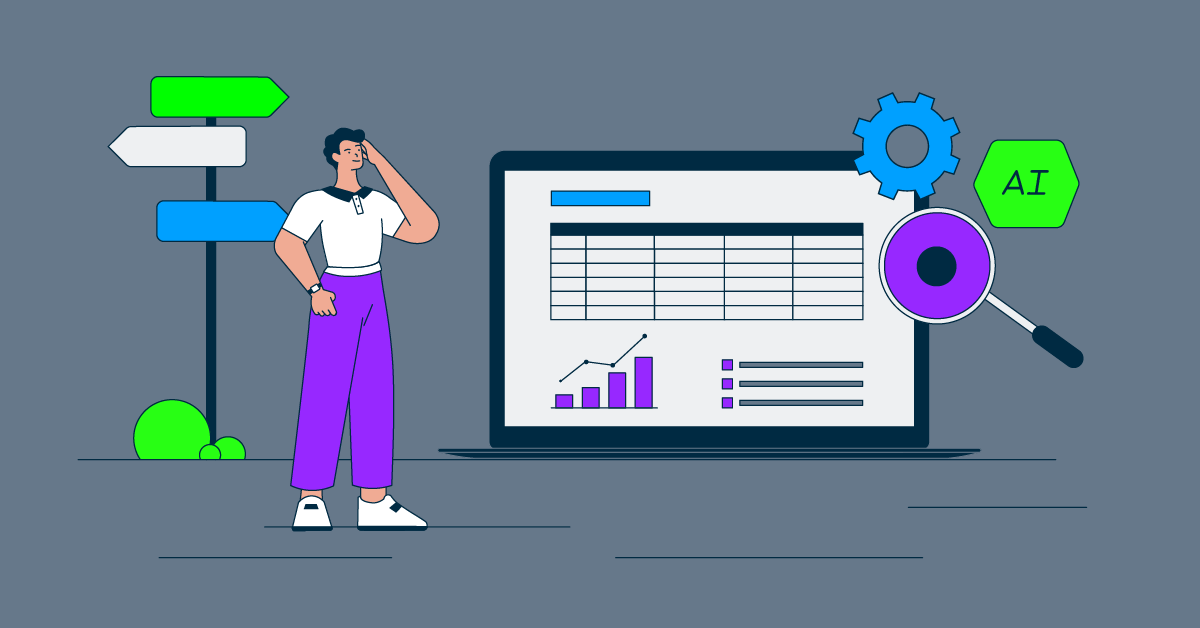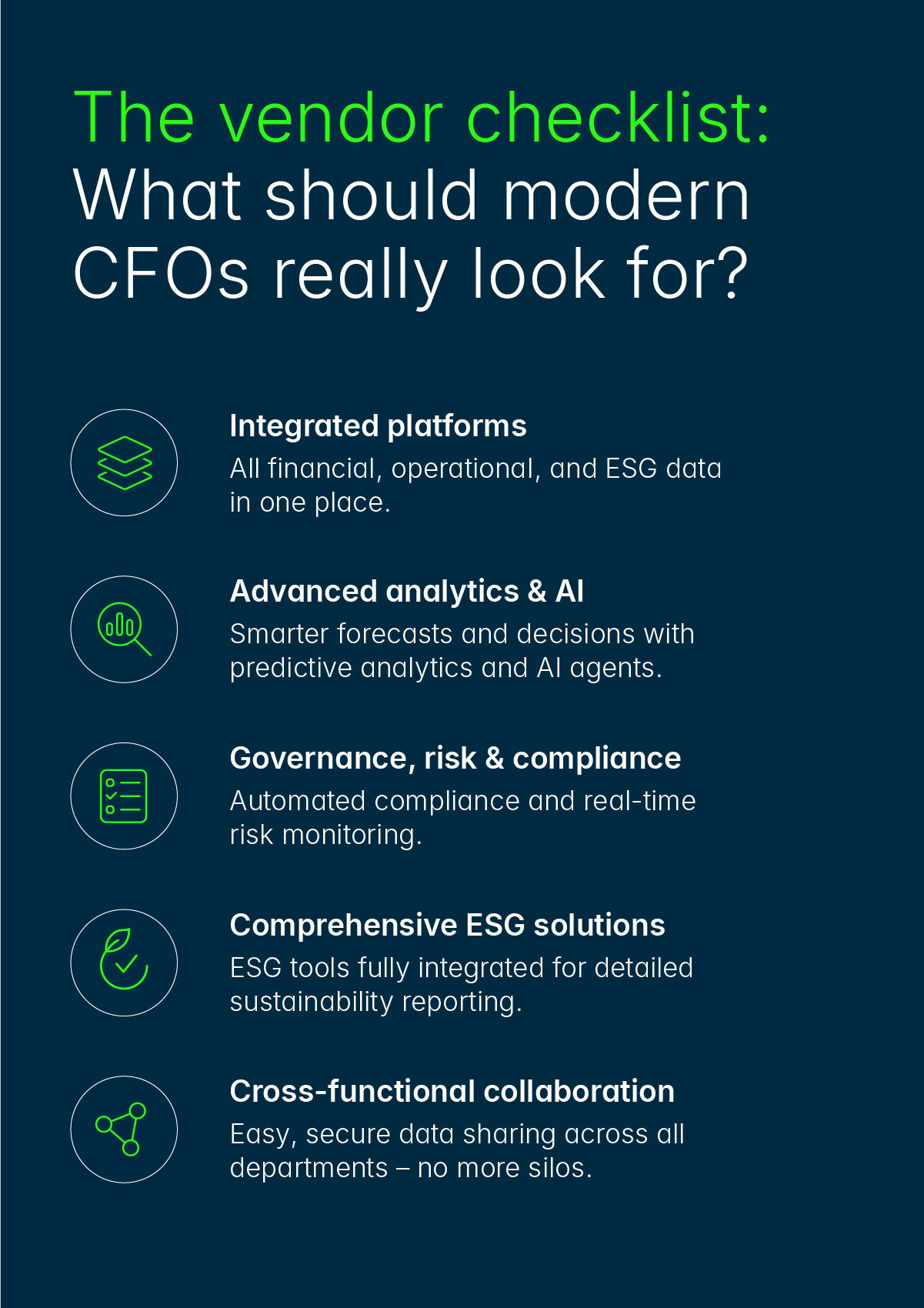A great CFO is all about mastering the numbers?
Think again.
Today's CFOs are increasingly involved in strategy, digital transformation, ESG, risk management, and operational decisions – often well beyond traditional finance.
As expectations grow, the ability to choose technology vendors who understand and support this expanded responsibility becomes a decisive factor for success. But what should a CFO actually look for in a vendor?
This article will give you practical guidance on how to identify technology partners that truly fit the realities – and demands – of your expanding CFO role.
Why many CFOs are taking on more than finance alone
According to IDC's report “CFOs Are Expanding Their Responsibilities Beyond Finance”, more than half of finance chiefs now oversee HR, IT, and ESG functions.[1] In an Egon Zehnder survey of approximately 600 CFOs, 82% reported having taken on new responsibilities that were not part of their remit just five years ago.[2]
Bottom line: The modern CFO's role isn't confined to finance anymore.
This shift is driven by the need for greater transparency, rising business risks, and the growing complexity of strategic projects that cut across traditional departmental boundaries. Today’s finance leaders are expected to assess how every initiative – whether operational, digital, or regulatory – can impact financial performance and long-term business health.
[1] IDC MARKET PERSPECTIVE: CFOs Are Expanding Their Responsibilities Beyond Finance: The impact on Technology Vendors, January 2025
[2] Egon Zehnder, The Super CFO. A Report on Shifting CFO Responsibilities, 2024, https://www.egonzehnder.com/the-super-cfo
6 challenges a modern CFO must master
Today's CFOs are more than just "number crunchers". But what exactly are the new challenges they face? Let's take a closer look:
Strategic planning: CFOs leverage financial data combined with operational insights to drive corporate strategies and long-term growth plans.
Digital transformation: They play an instrumental role alongside CIOs in deploying advanced ERP systems, AI solutions, and data analytics tools.
ESG and sustainability leadership: CFOs now oversee sustainability initiatives, aligning financial operations with frameworks for climate-related and sustainability reporting.
Stakeholder expectations: Investors, regulators, and customers demand greater transparency around ESG, sustainability, and business continuity. CFOs are leading efforts to integrate sustainability into business models, provide reliable ESG reporting, and ensure compliance with international standards.
Risk management: CFOs are actively involved in managing complex risks such as cybersecurity threats, regulatory changes, and geopolitical issues, with a focus on assessing and mitigating their financial impact on the company.
Operational and talent efficiency: CFOs are becoming more involved in managing HR and operational efficiency, controlling headcount costs, developing workforce strategies, and aligning talent management with business objectives.
The vendor checklist: What should CFOs really look for?
As their responsibilities extend beyond finance, CFOs must set new standards for technology vendors. It is no longer enough for providers to offer isolated solutions or standard functionality. So, what should CFOs and finance leaders be looking for when selecting a vendor?
Integrated platforms: CFOs expect technology to seamlessly integrate financial, operational, and ESG data. Platforms must offer holistic views that enhance strategic decisions.
Advanced analytics and AI capabilities: CFOs require predictive analytics, scenario modeling, and AI-driven insights that ensure efficiency and accuracy in forecasting and strategy implementation.
Robust governance, risk, and compliance solutions: With increased scrutiny and regulatory complexity, CFOs prioritize solutions that automate compliance, enhance real-time risk monitoring, and maintain data integrity.
Comprehensive ESG solutions: CFOs should seek ESG tools that are not standalone, but seamlessly integrated into broader finance platforms. These solutions should align with global frameworks and enable detailed sustainability reporting that goes beyond basic metrics.
Cross-functional collaboration tools: CFOs demand collaborative technologies, facilitating efficient communication and data sharing across departments like HR, IT, and operations.

